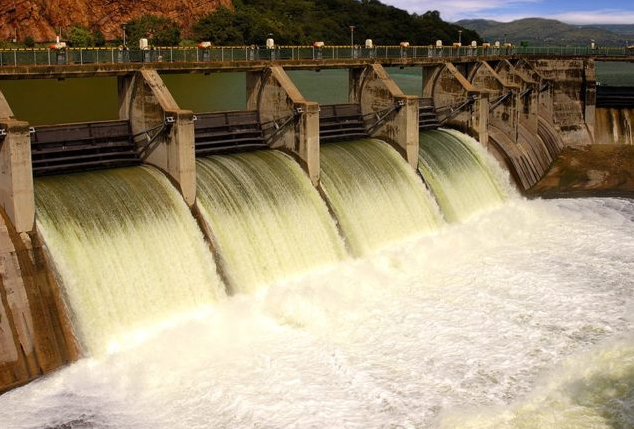The Dubai Electricity and Water Authority (DEWA) has awarded a Dh1.437 billion ($391 million) construction contract for a 250-MW hydropower project in the United Arab Emirates (UAE), a project considered the first of its kind in the Gulf region.

The Hatta hydroelectric power plant will use water stored in an upper reservoir at the Hatta Dam, utilizing pumped storage technology with solar-powered pumps at the Mohammed bin Rashid Al Maktoum Solar Park. The plant is part of the Dubai Clean Energy Strategy 2050 program, which has a goal of providing 75% of Dubai’s total power generation from clean energy sources by 2050.
The contract was announced Aug. 17, and awarded to a consortium that includes STRABAG Dubai LLC and STRABAG AG, part of the German-based STRABAG Group; Austria’s Andritz Hydro; and Ozkar, an Oman-based construction company. France’s EDF is consulting on the project, which is scheduled to be commissioned in early 2024. The project’s design will allow the water stored in the reservoir to be used repeatedly to generate power, with the falling water producing hydropower. The water will then be pumped back into the reservoir for re-use. Officials with DEWA on Saturday said the project will be designed to last at least 80 years.
Hamdan bin Mohammed, the crown prince of Dubai, in a tweet on Saturday said, “We are proud of @DEWAOfficial’s move to award a construction contract for a hydroelectric power station in Hatta. At a total value of AED 1.437 billion, it is the first project of its kind in the Arabian Gulf, and will benefit from water stored in the Hatta Dam.”
The UAE is developing the area around Hatta as a tourist center as part of its Hatta Comprehensive Development Plan. DEWA is supporting that effort, providing jobs for UAE nationals and planning tourist facilities associated with the hydropower project.
“This Dh1.437 billion pumped-storage hydroelectric power station project is part of our efforts, initiatives, and plans to achieve the vision” of the Clean Energy Strategy 2050 program, said HE Saeed Mohammed Al Tayer, CEO of DEWA. “DEWA’s strategy supports the UAE Centennial 2071, the UAE Vision 2021, and the Dubai Plan 2021 to ensure a sustainable, happy future and support the UAE’s aim to become first in everything.”
Dubai’s Clean Energy Strategy 2050 program was launched by Sheikh Mohammed bin Rashid Al Maktoum, vice president and prime minister of the UAE, and ruler of Dubai.
DEWA in announcing the Hatta project said it will be able to reach 80% of its generation capacity within 90 seconds of start-up of the system, which will use reversible pump-turbine/motor-generator assemblies, which can act as both pumps and turbines.
“We are committed to supporting sustainable development, conserving natural resources and achieving economic, social and environmental development, in line with the aspirations of good leadership,” said Al Tayer. “Our use of hydroelectricity is part of our drive to achieve the objectives of the Dubai Clean Energy Strategy 2050, to transform the Emirate into a global hub for clean energy and green economy, and to increase the share of clean energy mix in Dubai to 75% by 2050.”
Dubai earlier this year brought the Noor Abu Dhabi solar project online. Emirates Water and Electricity Company, which operates the 1,177-MW facility, said it is the “world’s largest single-site solar project.”
Thani Al Zeyoudi, the UAE Minister of Climate Change and Environment, in June announced plans for a 2-GW solar power plant that would be built in the Al Dhafra region. He said the project “will eclipse the record-breaking 1-GW Noor Abu Dhabi Plant.” The minister said the project will likely be open to bids later this year.